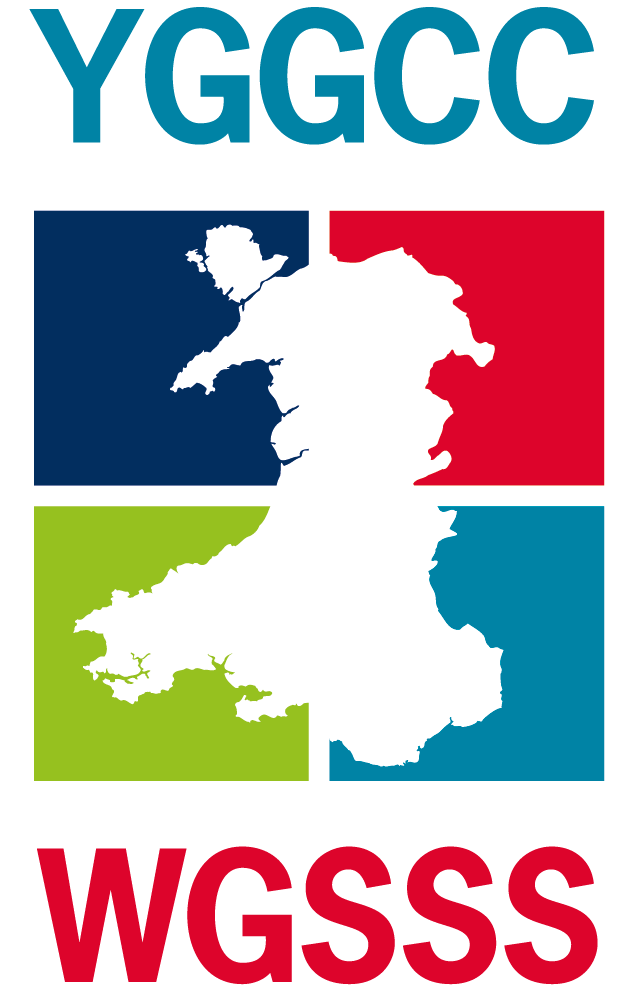The ESRC Wales DTP is working to support our community of researchers in this very difficult period. We know that the COVID-19 pandemic and related restrictions are imposing a heavy burden on many, and creating anxiety and apprehension for all. We have prepared the following list of frequently asked questions and answers in order to provide guidance on some of the implications of COVID-19 on your ESRC-funded studentship or Fellowship.
We continue to study the developing situation and to take advice from our 6 partner institutions, the ESRC and public health authorities. We advise all Wales DTP students to keep in touch with their supervisors and to discuss with them in the first instance any obstacles to research, and to follow any guidance provided by their own institutions as a priority. UKRI have also issued some guidance at on their website. This is being updated regularly and may also answer concerns that you might have.
On 9 April, UKRI announced that doctoral students in their final year of funding who have been impacted by the COVID-19 pandemic will be offered an extension to their research of up to six months. This applies to students with funding ending between 1 March 2020 and 31 March 2021. See the UKRI website for further information. The Wales DTP is currently working to implement updated guidance issued on 24 April and will be in touch with eligible students once an extensions applications process is available.
Given the rapidly changing situation, this page will be updated on an ongoing basis.
Travel
As per ESRC guidelines, the Wales DTP is not permitted to fund any travel to countries that the Foreign and Commonwealth Office (FCO)advises against visiting.
As of 16 March, the UK Government has advised against all non-essential travel. The ESRC has advised that research-related travel is ‘not essential travel’. If you are currently travelling abroad but live in the UK, the FCO has strongly advised that your return is immediate. Please refer to guidance issued by your home institution regarding return travel arrangements to the UK.
My Overseas Institutional Visit has been cut short or postponed as a result of COVID-19
If you have returned early from your visit as a result of COVID-19, the Wales DTP will permit a future return visit. Contingent on FCO travel advice and host institution guidance, a visit to the same hosting University/organisation is permissible provided that this can be undertaken within the funding limit already agreed for your OIV. Should this not be possible, we will need to assess each case individually to ascertain whether further support can be provided. You must still be within the funded period of award when you undertake a visit. Due to the current circumstances, the ESRC will exceptionally allow requests for Overseas Institutional Visits to be conducted in the final three months of funding where it is clearly beneficial to do so.
If you have had to postpone an OIV due to COVID-19, this may be rescheduled contingent on FCO and host institutional guidance. The rescheduled visit must be undertaken during the funded period of award.
Please ensure that you are keeping both your home institution and the Wales DTP up to date with your situation and any plans to reschedule.
My Overseas Fieldwork has been cut short or cancelled as a result of COVID-19
If you have returned from your fieldwork earlier than originally planned as a result of COVID-19, we would expect that in conjunction with your supervisor, a review is undertaken of the data that you have already collected in order to ascertain whether a second visit is required or if the parameters of the research can be amended to suit the data that is available.
If your fieldwork has been cancelled due to COVID-19, we would suggest that a review of your research plan is undertaken with your supervisor. As travel may be disrupted for a significant duration, it would be advisable to establish whether modifications or adjustments could be made in order to complete your PhD without overseas fieldwork. The ESRC will permit re-adjustments If the impact is such that a student’s project is no longer feasible.
If it is determined that overseas fieldwork is essential for completion of the PhD, this may be rescheduled during the funded period of award, contingent on FCO and host institutional guidance. Any overseas fieldwork funding that has been prior agreed by the Wales DTP may still be utilised.
Undertaking fieldwork or Difficult Language Training (DLT) in the UK
If travel within the UK is required for your fieldwork or DLT, we strongly advise that there is development of a contingency plan in the event that travel restrictions continue for a longer than anticipated period.
New applications for Overseas Institutional Visits, Overseas Fieldwork and Difficult Language Training
The Wales DTP has suspended the applications process for overseas fieldwork, institutional visits and difficult language training until further notice. We are unable to consider any new applications. This policy will be kept under review. It may however be a little while before it is possible to accept Overseas Fieldwork and Overseas Institutional Visit applications and we strongly advise that a contingency plan is developed.
Can I receive a funded extension as the ability to finish my Doctorate has been undermined due to COVID -19
A student’s ability to finish their doctorate within the funded period may, for example, be affected by their inability to travel, to conclude data collection activities or by the need to provide childcare or other caring responsibilities. Completion might also be affected by postponement of critical activities where alternatives are not available or through a significant period of self isolation (proportional to the time left in the funded period). The process of applying for an extension depends on your current studentship funding end date (including any prior suspensions/extensions that have moved your original studentship end date). If you are unsure of your studentship funding end date please contact your school/departmental PGR administrator.
Students whose studentship funding end date is between 1st March 2020 and 31st March 2021 and whose work has been affected by the COVID-19 pandemic are eligible to apply for an extension of up to 6 months. We have emailed application details to all students and you must submit your application by 9am on 26 May 2020.
Students with a funding end date of 1st April 2021 onward will be asked to complete a survey to gauge how you have been affected and to estimate the additional time needed to complete doctoral work. This does not commit you to submitting an extension request but we recommend you keep a record of any impact you feel COVID-19 is having on your progress. Further information regarding extensions will be communicated to you as soon as it is available.
Extensions outside of the funded period of award
In the circumstance where students are outside the funded period of award and find themselves unable to complete essential tasks in order to be ready to submit their thesis, for example due to departmental or institution closures, UKRI has recommended that submission date extensions should be granted by hosting institutions. Please therefore seek advice from your home institution. No institutional sanctions will be applied as a result of COVID-19 extensions.
Cancellation of a UK/Overseas conference/training event due to COVID-19
Advice should be sought from your home institution. It may be possible to obtain a refund for related costs from the event organisers and/or your travel insurance provider.
In some cases, a planned activity (such as a conference or training course) may be postponed until after the award end date. As of 18 March, the UKRI have stated they will allow a no-cost extension (non-funded) to permit attendance. Furthermore, as an exception, the cost of attending the activity can be claimed in the usual way from a student’s RTSG.
Postdoctoral Fellowship extension requests concerning conferences that are rescheduled due to COVID-19
Whilst funds cannot be spent after the grant period, Fellows can request no-cost extensions to their awards if there is a conference or event that no longer falls within the funded period. A Postdoctoral Fellow can apply for a no-cost extension via Je-S. The UKRI website provides further information.
I am currently undertaking an internship and it has been suspended due to the temporary closure of the host organisation
A rescheduled internship would need to be undertaken during the funded period of award. Due to the current circumstances, the ESRC will exceptionally allow internships to be conducted in the final three months of funding.
Use of the Research Training Support Grant: costs for home working
Given the exceptional circumstances and requirement for extended home working due to COVID-19, it is possible for the additional PhD research costs arising, such as essential book purchases, to be charged against a student’s RTSG. Expenditure on equipment to enable participation in remote supervision sessions, conferences or academic events which are virtual in place of face-to-face, may also be charged against the RTSG. Total equipment purchases should not exceed £500 and should enable office-type work. The costs for equipment which would ordinarily be provided by the host University (i.e. a computer) cannot be covered. There would not be an expectation that high-power computing equipment for research purposes would be purchased. Equipment may only be purchased when there is no existing equipment that can be utilised (i.e. a student’s own monitor). Any equipment purchased in excess of £200 would normally remain in the custody of the host school/department following completion of a student’s award. As broadband is considered a utility, the costs of providing broadband or enhancing it may not be covered by the RTSG. It also isn’t possible to use the RTSG to purchase office furniture such as desks or chairs. Students are advised to refer to host institutional guidance should office furniture be required.
The RTSG cannot be increased and any expenditure must be accommodated within the existing allowance.
The costs specifically related to facilitating the studies of those with a disability should be requested through the Disabled Student Allowance scheme. We would encourage students who have altered or new needs as a result of the pandemic response to contact the Disability Adviser or named contact on disability matters at their host institution.
DTP Small Grants and Cohort Development events
Activities supported by DTP small grant and cohort development grant funding should accord with the prevailing guidance of the hosting institution. Current advice is that those organising events should consider virtual alternatives or if this is not feasible event postponement. Should you require advice on how to go about hosting events virtually please get in touch with the DTP office (enquiries@walesdtp.ac.uk).
Sickness
As per the ESRC Postgraduate Funding Guide, a student can continue to receive their stipend for up to 13 weeks of illness within a 12-month period. If you become ill, please let your home institution know. Studentships will be extended to cover the period of absence, up to 13 weeks. Those who have already used their 13 weeks’ sick pay for the current academic year for other reasons, may still be eligible for further support due to COVID-19. UKRI is working to Government guidance regarding medical certification. Please seek advice from your host institution concerning medical certificates.
Where students are not ill, but self-isolating, a studentship should not be suspended. In many cases, students will be able to work from home even if the activities undertaken change. To maintain your supervision, we would expect communication with your supervisor via email/phone call/video call. If you are in a situation where self-isolation is required, please inform your home institution accordingly.
Keeping in touch
We value feedback, advice and information from our researcher community. We encourage you to follow us on Twitter (@WalesDTP) and Facebook, to make contact with the DTP Student representative at your institution, or to contact us via email at enquiries@walesdtp.ac.uk.

